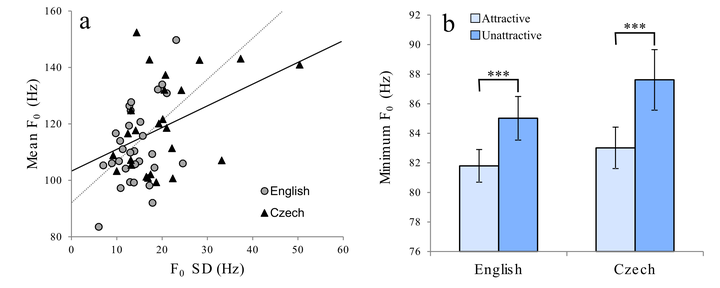Vocal modulation during courtship increases proceptivity even in naive listeners
 Image credit: Juan David Leongómez 2014
Image credit: Juan David Leongómez 2014Resumen
Speakers modulate their voice when talking to infants but we know little about subtle variation in acoustic parameters during normal adult speech, and investigation is impeded by listeners’ understanding of semantic content. Here we circumvent this problem by analysing speech in simulated courtship scenarios and testing responses in naïve listeners, across both a Germanic (English) and a Slavic (Czech) language. Acoustic analysis revealed striking similarity across the two languages in patterns of social context-dependent variability in fundamental frequency (F0) but not in other parameters. Both sexes varied F0 most when responding to attractive individuals. We then show that speech directed towards these attractive individuals increased proceptivity in naïve listeners of either language, even when voices were stripped of all acoustic properties except F0 by low-pass filtering, which renders speech unintelligible. Our results demonstrate that modulating F0 is a critical parameter in human courtship, independently of semantic content.